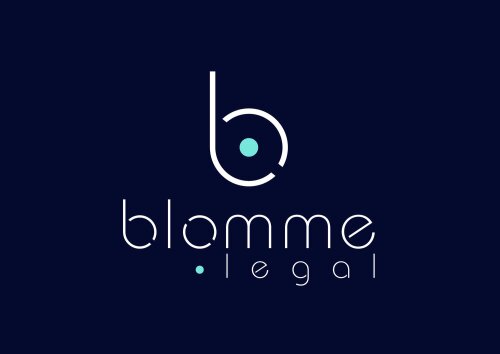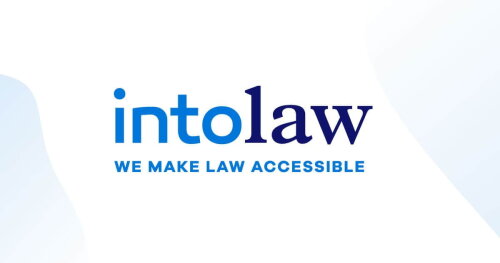Best Landlord & Tenant Lawyers in Ghent
Share your needs with us, get contacted by law firms.
Free. Takes 2 min.
Free Guide to Hiring a Real Estate Lawyer
List of the best lawyers in Ghent, Belgium
About Landlord & Tenant Law in Ghent, Belgium
Landlord and tenant law in Ghent is governed by a mix of federal and regional legislation, with recent reforms under the Flemish Housing Rental Decree (Vlaamse Woninghuurdecreet). The law aims to balance the rights and obligations of landlords and tenants, ensuring fair treatment, safe living conditions, and clear rules for property rental. Whether you are renting out a residential property or looking for a place to live in Ghent, understanding these regulations is crucial for avoiding disputes and safeguarding your interests.
Why You May Need a Lawyer
Legal advice can be essential in several landlord-tenant situations. Common reasons to seek a lawyer include:
- Drafting or reviewing rental contracts to ensure compliance with the law
- Resolving disputes over deposits, rent increases, or repairs
- Protecting your rights during eviction or resolving wrongful eviction claims
- Handling subletting or assignment concerns
- Dealing with damages and disputes at the end of a tenancy
- Addressing discrimination or violation of privacy rights
- Interpreting new Flemish Housing Rental Decree requirements
Legal professionals can guide both landlords and tenants, helping them mediate, negotiate, or represent their interests in court if necessary.
Local Laws Overview
Ghent follows the Flemish Housing Rental Decree, which complements the Belgian Civil Code with specific provisions for the Flemish Region. Important aspects include:
- Written contracts are mandatory for residential rentals
- The standard lease duration is nine years, but shorter contracts are allowed under conditions
- Security deposits are capped at three months’ rent and must be placed in a blocked account
- Annual rent indexation is permitted but strictly regulated
- Inspection inventories are required at the start and end of each tenancy
- Repairs and maintenance duties are divided between landlord (major repairs) and tenant (minor upkeep)
- Rules for termination notice periods and compensation depend on the timing and reason for contract termination
These local laws are designed to prevent exploitation and provide clear routes for resolving disputes.
Frequently Asked Questions
Is a written tenancy agreement required in Ghent?
Yes, a written tenancy agreement is mandatory for residential leases in Ghent and elsewhere in Flanders. Both parties must receive a signed copy.
How much deposit can a landlord request?
A landlord can require a maximum deposit equivalent to three months’ rent. This must be placed in a blocked bank account in the tenant’s name.
Can landlords increase the rent every year?
Landlords can increase rent annually based on inflation, but only according to the permitted indexation formula. Any other rent increases must be agreed upon and are subject to legal restrictions.
What are the notice periods for ending a lease?
Notice periods vary depending on contract type and reason for termination but are typically three months for standard nine-year contracts. Compensation may be owed if the tenant leaves early.
Who is responsible for repairs?
Landlords handle structural and major repairs. Tenants are responsible for minor maintenance and small repairs due to normal use.
Can a landlord enter the property without permission?
No, landlords must respect tenant privacy and can only enter with the tenant’s consent, except in emergencies or for inspections with prior notice.
What happens if there is a dispute over the deposit?
If there is a dispute at the end of the tenancy, the deposit remains blocked until both parties agree or a court resolves the issue. Legal assistance may help in reaching an agreement.
Are there special rules for student housing?
Yes, student rental contracts in Ghent typically have specific terms regarding duration, deposits, and notice. These rules are designed to match academic calendars and student needs.
Is subletting allowed?
Subletting is only permitted if the original lease agreement or landlord explicitly allows it. Unauthorized subletting may lead to contract termination.
How can I challenge an unlawful eviction?
If you believe you have been wrongfully evicted, you can contest the action through the Justice of the Peace Court. Legal advice is highly recommended in these cases.
Additional Resources
Several organizations and authorities in Ghent and Flanders can provide assistance or information regarding landlord and tenant matters:
- Huurdersbond (Tenants’ Association) Vlaanderen - Advocacy and advice for tenants
- Vlaams Woningfonds - Information and legal support for housing in Flanders
- OJMW Ghent (Openbaar Centrum voor Maatschappelijk Welzijn) - Social welfare and mediation services
- Lokale Vredegerechten (Justice of the Peace Courts) - Local courts handling tenancy disputes
- Flemish Housing Department (Wonen Vlaanderen) - Official guidance on housing laws and procedures
Next Steps
If you need legal assistance with a landlord-tenant issue in Ghent, start by gathering all relevant documents such as your contract, deposit records, correspondence, and inspection reports. Reach out to a specialized lawyer in landlord-tenant law or contact a local tenants’ association for guidance. Many disputes can be resolved through mediation, but legal representation may be necessary if the conflict escalates. Consider consulting a legal professional as early as possible to protect your rights and ensure compliance with all local laws. If required, prepare to present your case before the Justice of the Peace Court, which is the designated venue for most housing disputes in Belgium.
Remember, understanding your rights and obligations is key to a fair rental experience in Ghent.
Lawzana helps you find the best lawyers and law firms in Ghent through a curated and pre-screened list of qualified legal professionals. Our platform offers rankings and detailed profiles of attorneys and law firms, allowing you to compare based on practice areas, including Landlord & Tenant, experience, and client feedback.
Each profile includes a description of the firm's areas of practice, client reviews, team members and partners, year of establishment, spoken languages, office locations, contact information, social media presence, and any published articles or resources. Most firms on our platform speak English and are experienced in both local and international legal matters.
Get a quote from top-rated law firms in Ghent, Belgium — quickly, securely, and without unnecessary hassle.
Disclaimer:
The information provided on this page is for general informational purposes only and does not constitute legal advice. While we strive to ensure the accuracy and relevance of the content, legal information may change over time, and interpretations of the law can vary. You should always consult with a qualified legal professional for advice specific to your situation.
We disclaim all liability for actions taken or not taken based on the content of this page. If you believe any information is incorrect or outdated, please contact us, and we will review and update it where appropriate.







![Advocatenkantoor RECHT[PUNT]GENT](https://lawzana.com/storage/firms/21952/17618334752771.jpg)







